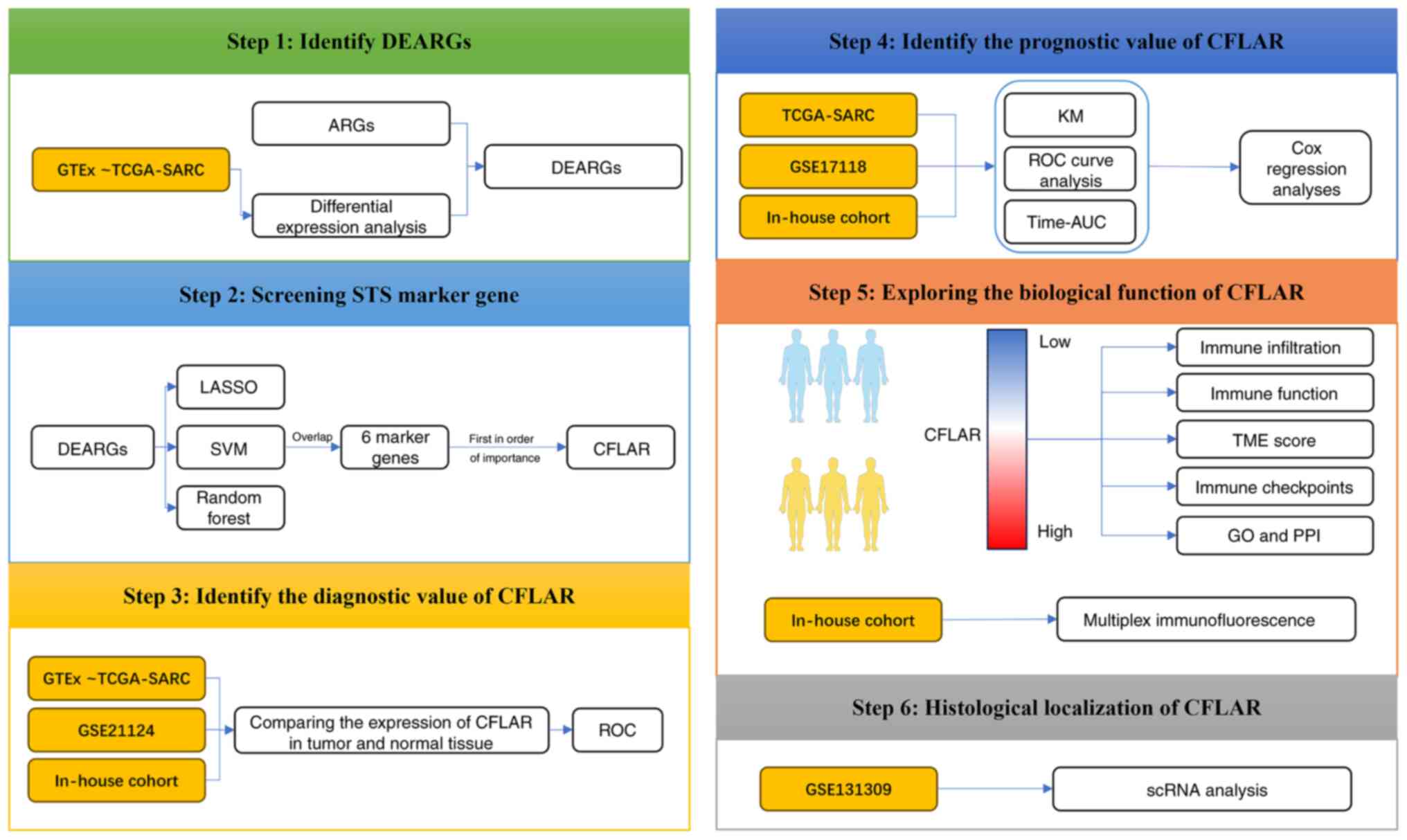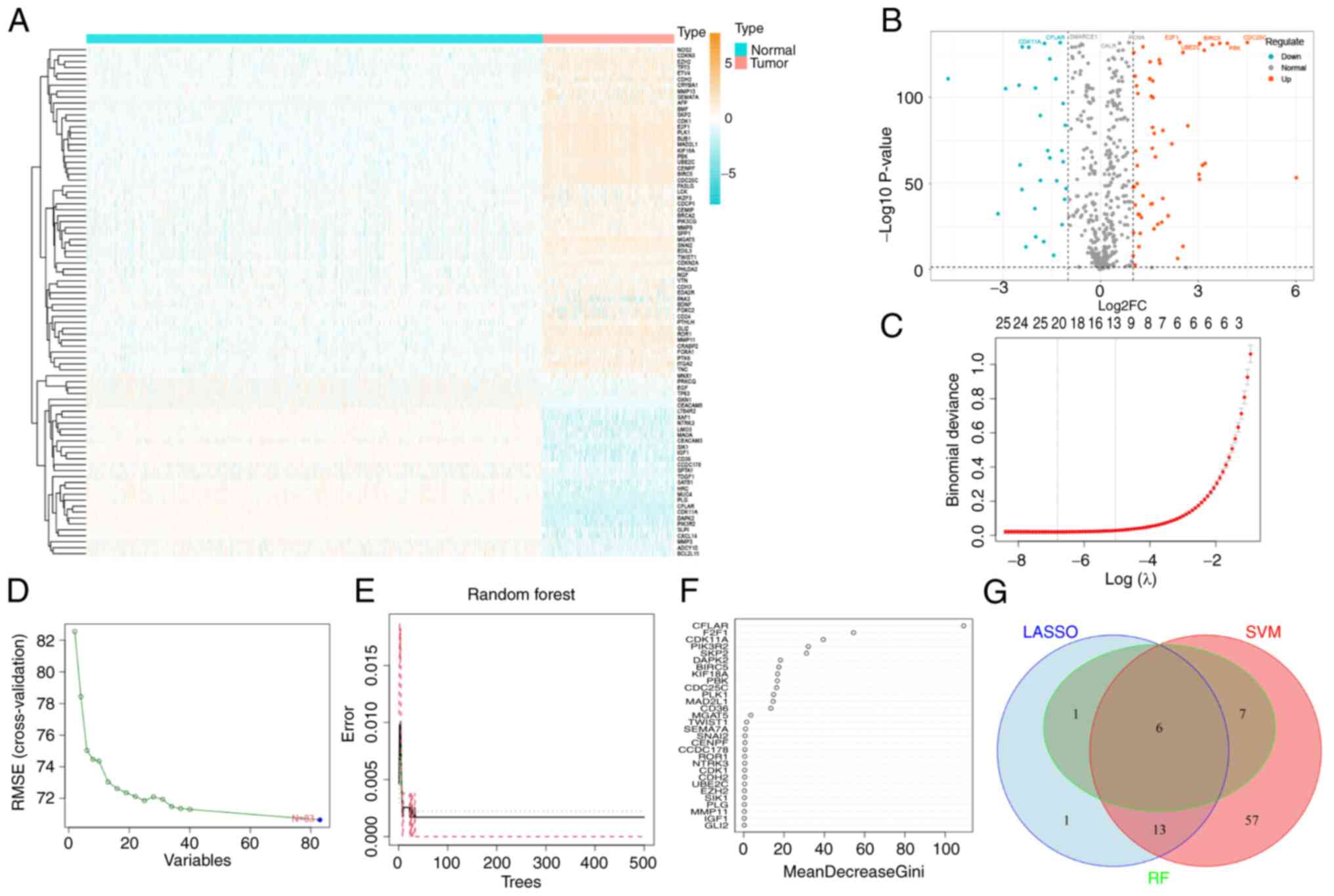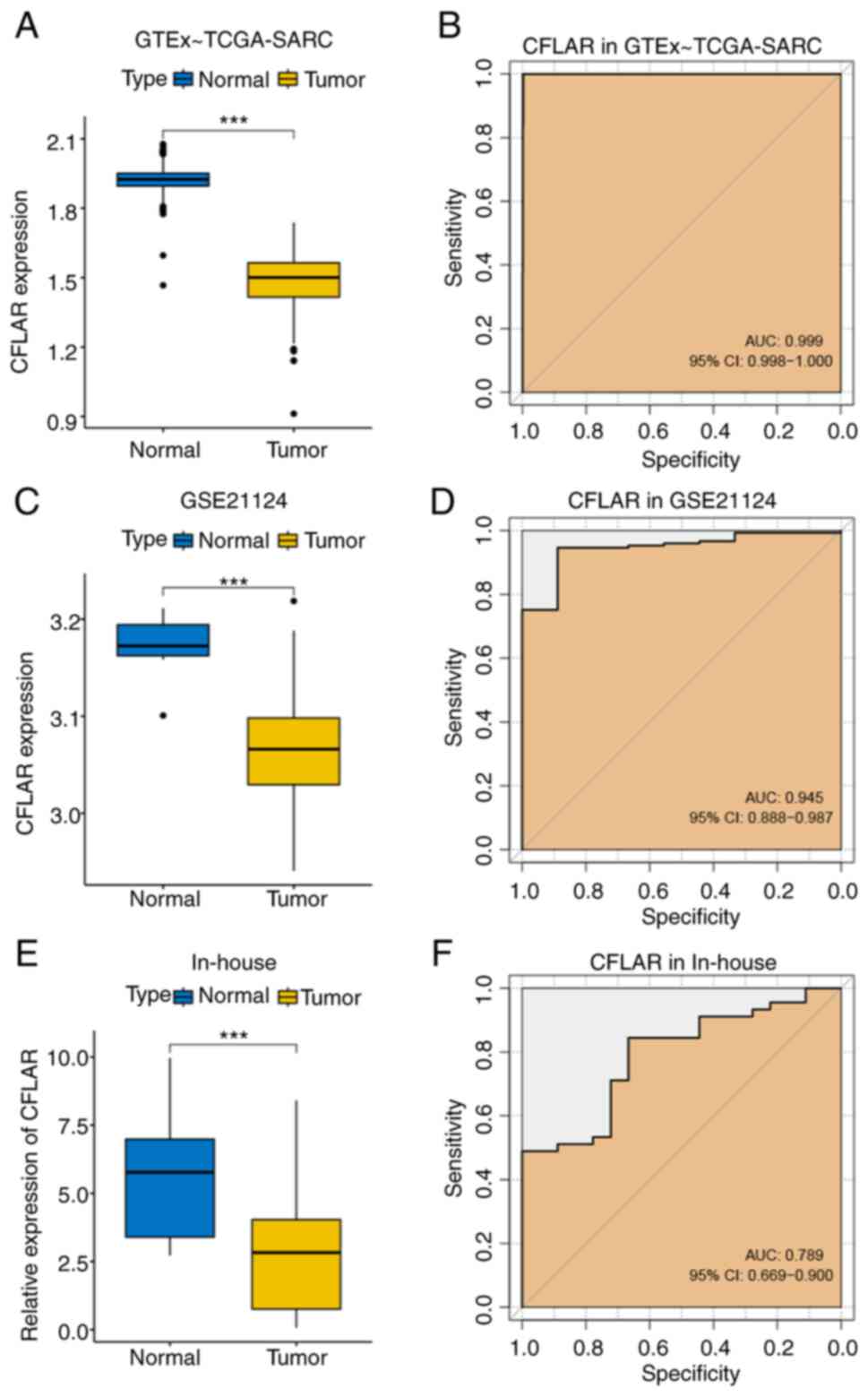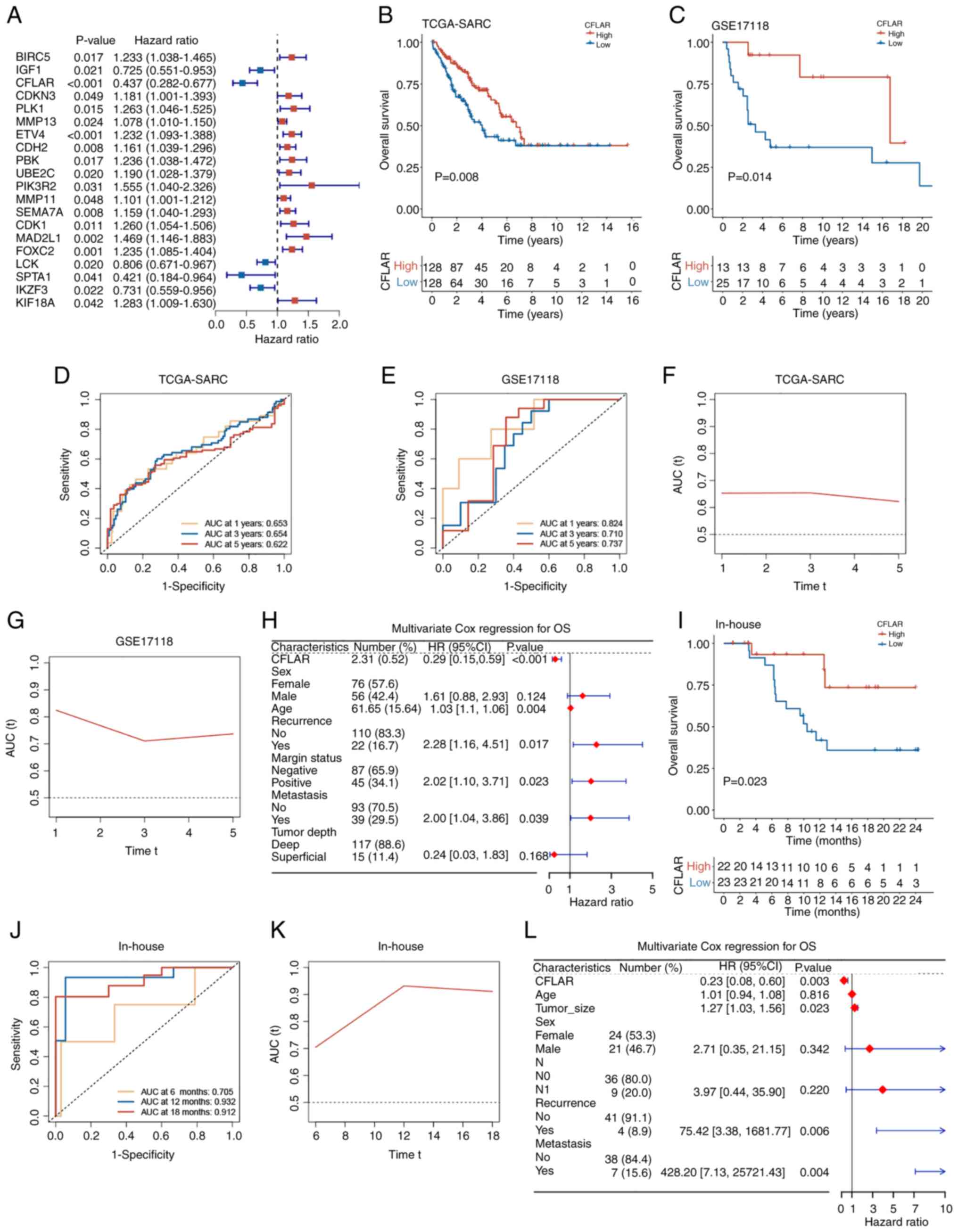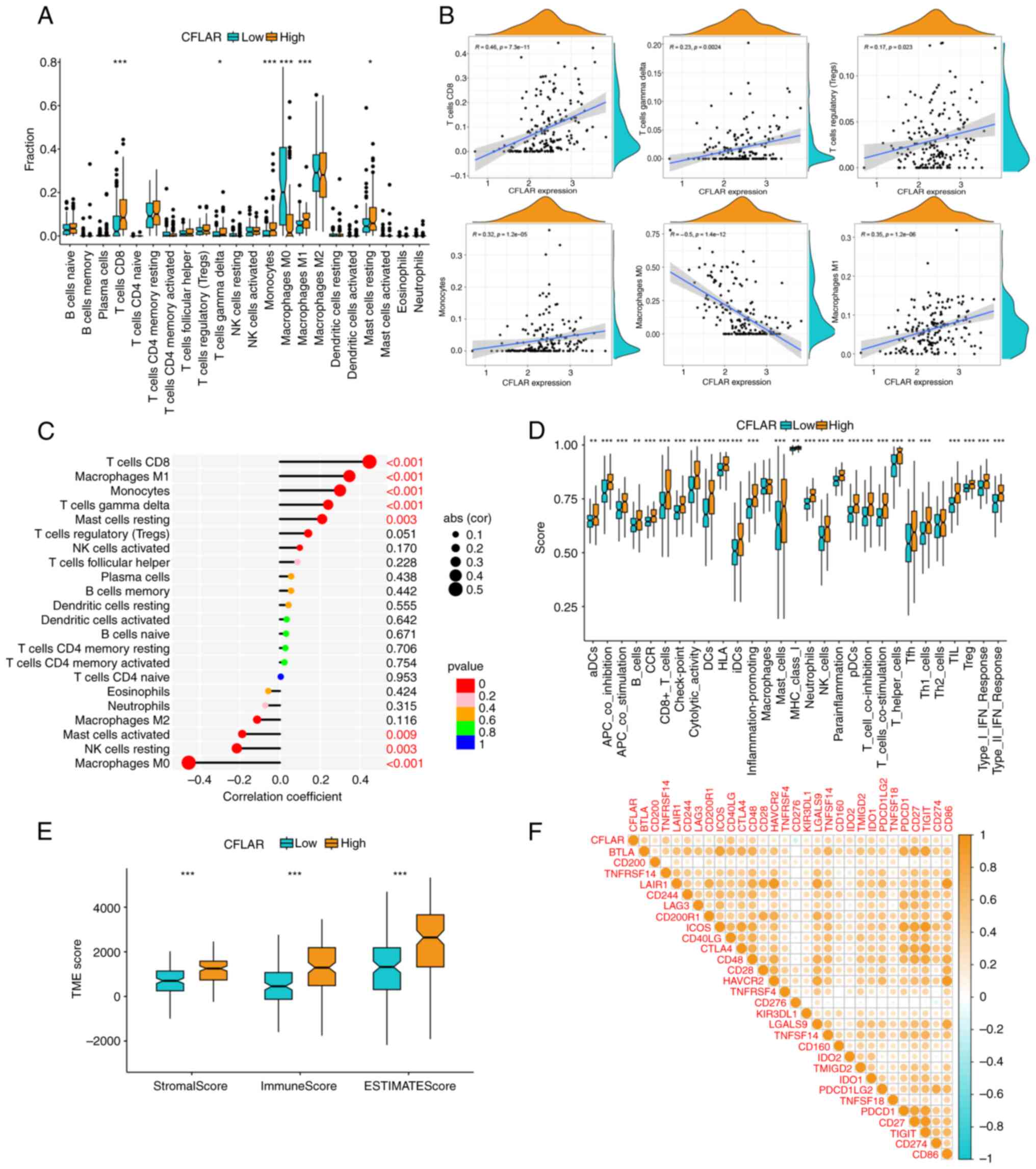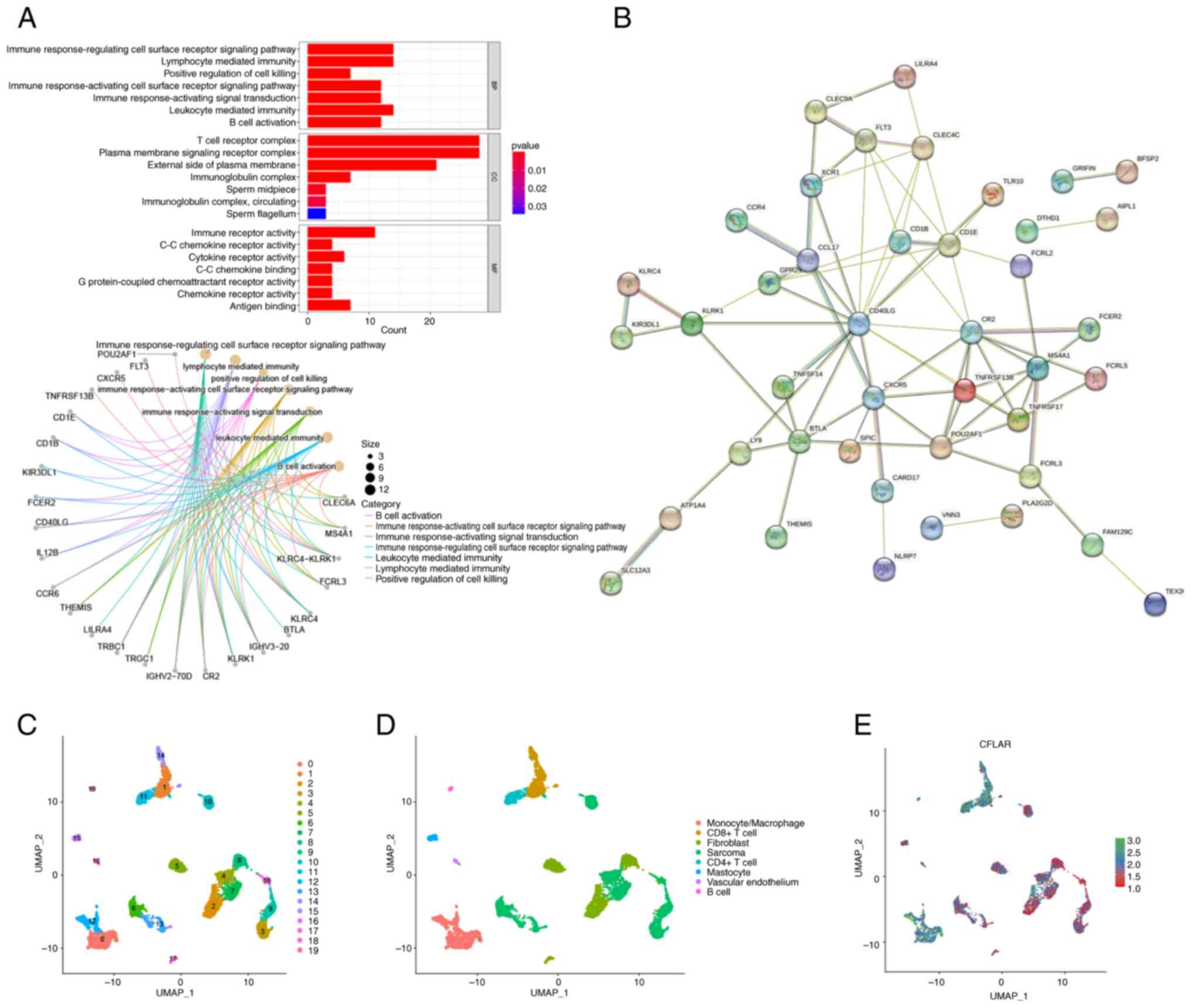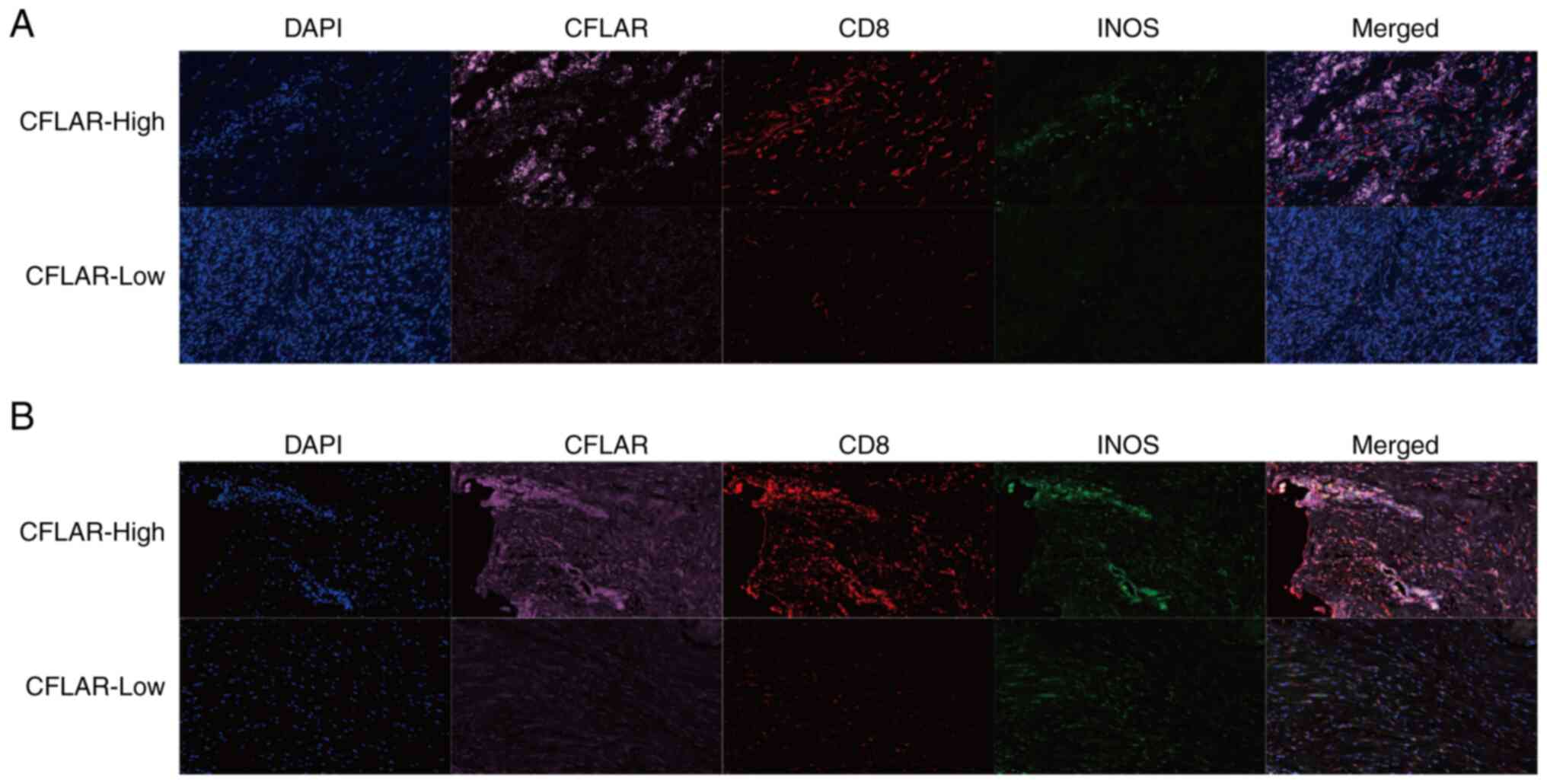|
1
|
Gamboa AC, Gronchi A and Cardona K:
Soft-tissue sarcoma in adults: An update on the current state of
histiotype-specific management in an era of personalized medicine.
CA Cancer J Clin. 70:200–229. 2020. View Article : Google Scholar : PubMed/NCBI
|
|
2
|
Vilanova JC: WHO classification of soft
tissue tumors. Imaging of Soft Tissue Tumors. Vanhoenacker F,
Parizel P and Gielen J: 4th Edition. Springer; Cham, Switzerland:
pp. 187–196. 2017, View Article : Google Scholar
|
|
3
|
Hoven-Gondrie ML, Bastiaannet E, Ho VKY,
van Leeuwen BL, Liefers GJ, Hoekstra HJ and Suurmeijer AJ: Worse
survival in elderly patients with extremity soft-tissue sarcoma.
Ann Surg Oncol. 23:2577–2585. 2016. View Article : Google Scholar : PubMed/NCBI
|
|
4
|
Crago AM and Brennan MF: Principles in
management of soft tissue sarcoma. Adv Surg. 49:107–122. 2015.
View Article : Google Scholar : PubMed/NCBI
|
|
5
|
Navarria P, Ascolese AM, Cozzi L, Tomatis
S, D'Agostino GR, De Rose F, De Sanctis R, Marrari A, Santoro A,
Fogliata A, et al: Stereotactic body radiation therapy for lung
metastases from soft tissue sarcoma. Eur J Cancer. 51:668–674.
2015. View Article : Google Scholar : PubMed/NCBI
|
|
6
|
Sameer UK, Kaneez F and Fayaz M:
Understanding the cell survival mechanism of anoikis-resistant
cancer cells during different steps of metastasis. Clin Exp
Metastasis. 39:715–726. 2022. View Article : Google Scholar : PubMed/NCBI
|
|
7
|
Gilmore AP: Anoikis. Cell Death Differ.
12:1473–1477. 2005. View Article : Google Scholar : PubMed/NCBI
|
|
8
|
Weiss F, Lauffenburger D and Friedl P:
Towards targeting of shared mechanisms of cancer metastasis and
therapy resistance. Nat Rev Cancer. 22:157–173. 2022. View Article : Google Scholar : PubMed/NCBI
|
|
9
|
Berezovskaya O, Schimmer AD, Glinskii AB,
Pinilla C, Hoffman RM, Reed JC and Glinsky GV: Increased expression
of apoptosis inhibitor protein XIAP contributes to anoikis
resistance of circulating human prostate cancer metastasis
precursor cells. Cancer Res. 65:2378–2386. 2005. View Article : Google Scholar : PubMed/NCBI
|
|
10
|
Kim YN, Koo KH, Sung JY, Yun UJ and Kim H:
Anoikis resistance: An essential prerequisite for tumor metastasis.
Int J Cell Biol. 2012:3068792012. View Article : Google Scholar : PubMed/NCBI
|
|
11
|
Yu Y, Song Y, Cheng L, Chen L, Liu B, Lu
D, Li X, Li Y, Lv F and Xing Y: CircCEMIP promotes
anoikis-resistance by enhancing protective autophagy in prostate
cancer cells. J Exp Clin Cancer Res. 41:1882022. View Article : Google Scholar : PubMed/NCBI
|
|
12
|
Fulda S: Targeting c-FLICE-like inhibitory
protein (CFLAR) in cancer. Expert Opin Ther Targets. 17:195–201.
2013. View Article : Google Scholar : PubMed/NCBI
|
|
13
|
Irmler M, Thome M, Hahne M, Schneider P,
Hofmann K, Steiner V, Bodmer JL, Schröter M, Burns K, Mattmann C,
et al: Inhibition of death receptor signals by cellular FLIP.
Nature. 388:190–195. 1997. View
Article : Google Scholar : PubMed/NCBI
|
|
14
|
Xiaohong W, Jun Z, Hongmei G and Fan Q:
CFLAR is a critical regulator of cerebral ischaemia-reperfusion
injury through regulating inflammation and endoplasmic reticulum
(ER) stress. Biomed Pharmacother. 117:1091552019. View Article : Google Scholar : PubMed/NCBI
|
|
15
|
Xiao J, Moon M, Yan L, Nian M, Zhang Y,
Liu C, Lu J, Guan H, Chen M, Jiang D, et al: Cellular
FLICE-inhibitory protein protects against cardiac remodelling after
myocardial infarction. Basic Res Cardiol. 107:2392012. View Article : Google Scholar : PubMed/NCBI
|
|
16
|
Shirley S and Micheau O: Targeting c-FLIP
in cancer. Cancer Lett. 332:141–150. 2013. View Article : Google Scholar : PubMed/NCBI
|
|
17
|
Rao-Bindal K, Rao CK, Yu L and Kleinerman
ES: Expression of c-FLIP in pulmonary metastases in osteosarcoma
patients and human xenografts. Pediatr Blood Cancer. 60:575–579.
2013. View Article : Google Scholar : PubMed/NCBI
|
|
18
|
Lafferty-Whyte K, Bilsland A, Hoare SF,
Burns S, Zaffaroni N, Cairney CJ and Keith WN: TCEAL7 inhibition of
c-Myc activity in alternative lengthening of telomeres regulates
hTERT expression. Neoplasia. 12:405–414. 2010. View Article : Google Scholar : PubMed/NCBI
|
|
19
|
Barretina J, Taylor BS, Banerji S, Ramos
AH, Lagos-Quintana M, Decarolis PL, Shah K, Socci ND, Weir BA, Ho
A, et al: Subtype-specific genomic alterations define new targets
for soft-tissue sarcoma therapy. Nat Genet. 42:715–721. 2010.
View Article : Google Scholar : PubMed/NCBI
|
|
20
|
Jerby-Arnon L, Neftel C, Shore ME, Weisman
HR, Mathewson ND, McBride MJ, Haas B, Izar B, Volorio A, Boulay G,
et al: Opposing immune and genetic mechanisms shape oncogenic
programs in synovial sarcoma. Nat Med. 27:289–300. 2021. View Article : Google Scholar : PubMed/NCBI
|
|
21
|
Ritchie ME, Phipson B, Wu D, Hu Y, Law CW,
Shi W and Smyth GK: limma powers differential expression analyses
for RNA-sequencing and microarray studies. Nucleic Acids Res.
43:e472015. View Article : Google Scholar : PubMed/NCBI
|
|
22
|
Friedman J, Hastie T and Tibshirani R:
Regularization paths for generalized linear models via coordinate
descent. J Stat Softw. 33:1–22. 2010. View Article : Google Scholar : PubMed/NCBI
|
|
23
|
Wang H, Yang F and Luo Z: An experimental
study of the intrinsic stability of random forest variable
importance measures. BMC Bioinformatics. 17:602016. View Article : Google Scholar : PubMed/NCBI
|
|
24
|
Huang S, Cai N, Pacheco PP, Narrandes S,
Wang Y and Xu W: Applications of support vector machine (SVM)
learning in cancer genomics. Cancer Genomics Proteomics. 15:41–51.
2018.PubMed/NCBI
|
|
25
|
Tay JK, Narasimhan B and Hastie T: Elastic
net regularization paths for all generalized linear models. J Stat
Softw. 106:12023. View Article : Google Scholar : PubMed/NCBI
|
|
26
|
Liaw A and Wiener M: Classification and
regression by randomForest. R News. 2:18–22. 2002.
|
|
27
|
Meyer D, Dimitriadou E, Hornik K,
Weingessel A and Leisch F: e1071: Misc functions of the department
of statistics, probability theory group (Formerly: E1071), TU Wien.
R package version 1.7–13. 2023.
|
|
28
|
Therneau TM and Grambsch PM: Modeling
survival data: Extending the cox model. New York: Springer; 2000,
ISBN 0-387-98784-3. View Article : Google Scholar
|
|
29
|
Kassambara A, Kosinski M and Biecek P:
survminer: Drawing survival curves using ‘ggplot2’. R package
version 0.4.9. 2021.
|
|
30
|
Blanche P, Dartigues JF and Jacqmin-Gadda
H: Estimating and comparing time-dependent areas under receiver
operating characteristic curves for censored event times with
competing risks. Stat Med. 32:5381–5397. 2013. View Article : Google Scholar : PubMed/NCBI
|
|
31
|
Kassambara A: ggpubr: ‘ggplot2’ Based
Publication Ready Plots. R package version 0.6.0. 2023.
|
|
32
|
Hänzelmann S, Castelo R and Guinney A:
GSVA: Gene set variation analysis for microarray and RNA-seq data.
BMC Bioinformatics. 14:72013. View Article : Google Scholar : PubMed/NCBI
|
|
33
|
Yoshihara K, Kim H and Verhaak RG:
Estimate of stromal and immune cells in malignant tumor tissues
from expression data. R package version 1.0.13/r21. 2016.
|
|
34
|
Wu T, Hu E, Xu S, Chen M, Guo P, Dai Z,
Feng T, Zhou L, Tang W, Zhan L, et al: ClusterProfiler 4.0: A
universal enrichment tool for interpreting omics data. The
Innovation. 2:1001412021. View Article : Google Scholar : PubMed/NCBI
|
|
35
|
Gentleman RC, Carey VJ, Bates DM, Bolstad
B, Dettling M, Dudoit S, Ellis B, Gautier L, Ge Y, Gentry J, et al:
Bioconductor: Open software development for computational biology
and bioinformatics. Genome Biol. 5:R802005. View Article : Google Scholar
|
|
36
|
Stuart T, Butler A, Hoffman P, Hafemeister
C, Papalexi E, Mauck WM III, Hao Y, Stoeckius M, Smibert P and
Satija R: Comprehensive integration of single-cell data. Cell.
177:1888–1902. 2019. View Article : Google Scholar : PubMed/NCBI
|
|
37
|
Jerby-Arnon L, Neftel C, Shore ME, Weisman
HR, Mathewson ND, McBride MJ, Haas B, Izar B, Volorio A, Boulay G,
et al: Opposing immune and genetic mechanisms shape oncogenic
programs in synovial sarcoma. Nat Med. 27:289–300. 2021. View Article : Google Scholar : PubMed/NCBI
|
|
38
|
Hu C, Li T, Xu Y, Zhang X, Li F, Bai J,
Chen J, Jiang W, Yang K, Ou Q, et al: CellMarker 2.0: An updated
database of manually curated cell markers in human/mouse and web
tools based on scRNA-seq data. Nucleic Acids Res. 51:D870–D876.
2023. View Article : Google Scholar : PubMed/NCBI
|
|
39
|
Livak KJ and Schmittgen TD: Analysis of
relative gene expression data using real-time quantitative PCR and
the 2(−Delta Delta C(T)) method. Methods. 25:402–408. 2001.
View Article : Google Scholar : PubMed/NCBI
|
|
40
|
Frisch SM and Ruoslahti E: Integrins and
anoikis. Curr Opin Cell Biol. 9:701–706. 1997. View Article : Google Scholar : PubMed/NCBI
|
|
41
|
Frisch SM and Screaton RA: Anoikis
mechanisms. Curr Opin Cell Biol. 13:555–562. 2001. View Article : Google Scholar : PubMed/NCBI
|
|
42
|
Rennebeck G, Martelli M and Kyprianou N:
Anoikis and survival connections in the tumor microenvironment: Is
there a role in prostate cancer metastasis? Cancer Res.
65:11230–11235. 2005. View Article : Google Scholar : PubMed/NCBI
|
|
43
|
Chen Y, Huang W, Ouyang J, Wang J and Xie
Z: Identification of anoikis-related subgroups and prognosis model
in liver hepatocellular carcinoma. Int J Mol Sci. 24:28622023.
View Article : Google Scholar : PubMed/NCBI
|
|
44
|
Zhang Z, Zhu Z, Fu J, Liu X, Mi Z, Tao H
and Fan H: Anoikis patterns exhibit distinct prognostic and immune
landscapes in osteosarcoma. Int Immunopharmacol. 115:1096842023.
View Article : Google Scholar : PubMed/NCBI
|
|
45
|
Micheau O: Cellular FLICE-inhibitory
protein: An attractive therapeutic target? Expert Opin Ther
Targets. 7:559–573. 2003. View Article : Google Scholar : PubMed/NCBI
|
|
46
|
Hernandez A, Wang QD, Schwartz SA and
Evers BM: Sensitization of human colon cancer cells to
TRAIL-mediated apoptosis. J Gastrointest Surg. 5:56–65. 2001.
View Article : Google Scholar : PubMed/NCBI
|
|
47
|
Nam SY, Jung GA, Hur GC, Chung HY, Kim WH,
Seol DW and Lee BL: Upregulation of FLIP(S) by Akt, a possible
inhibition mechanism of TRAIL-induced apoptosis in human gastric
cancers. Cancer Sci. 94:1066–1073. 2003. View Article : Google Scholar : PubMed/NCBI
|
|
48
|
Elnemr A, Ohta T, Yachie A, Kayahara M,
Kitagawa H, Fujimura T, Ninomiya I, Fushida S, Nishimura GI,
Shimizu K and Miwa K: Human pancreatic cancer cells disable
function of Fas receptors at several levels in Fas signal
transduction pathway. Int J Oncol. 18:311–316. 2001.PubMed/NCBI
|
|
49
|
Griffith TS, Chin WA, Jackson GC, Lynch DH
and Kubin MZ: Intracellular regulation of TRAIL-induced apoptosis
in human melanoma cells. J Immunol. 161:2833–2840. 1998. View Article : Google Scholar : PubMed/NCBI
|
|
50
|
Xiao CW, Yan X, Li Y, Reddy SAG and Tsang
BK: Resistance of human ovarian cancer cells to tumor necrosis
factor alpha is a consequence of nuclear factor kappaB-mediated
induction of Fas-associated death domain-like
interleukin-1beta-converting enzyme-like inhibitory protein.
Endocrinology. 144:623–630. 2003. View Article : Google Scholar : PubMed/NCBI
|
|
51
|
Zhang X, Jin TG, Yang H, DeWolf WC,
Khosravi-Far R and Olumi AF: Persistent c-FLIP(L) expression is
necessary and sufficient to maintain resistance to tumor necrosis
factor-related apoptosis-inducing ligand-mediated apoptosis in
prostate cancer. Cancer Res. 64:7086–7091. 2004. View Article : Google Scholar : PubMed/NCBI
|
|
52
|
Wang L, Jin H, Jochems F, Wang S, Lieftink
C, Martinez IM, De Conti G, Edwards F, de Oliveira RL, Schepers A,
et al: cFLIP suppression and DR5 activation sensitize senescent
cancer cells to senolysis. Nat Cancer. 3:1284–1299. 2022.
View Article : Google Scholar : PubMed/NCBI
|
|
53
|
Ullenhag GJ, Mukherjee A, Watson NFS,
Al-Attar AH, Scholefield JH and Durrant LG: Overexpression of FLIPL
is an independent marker of poor prognosis in colorectal cancer
patients. Clin Cancer Res. 13:5070–5075. 2007. View Article : Google Scholar : PubMed/NCBI
|
|
54
|
Wang W, Wang S, Song X, Sima N, Xu X, Luo
A, Chen G, Deng D, Xu Q, Meng L, et al: The relationship between
c-FLIP expression and human papillomavirus E2 gene disruption in
cervical carcinogenesis. Gynecol Oncol. 105:571–577. 2007.
View Article : Google Scholar : PubMed/NCBI
|
|
55
|
Valnet-Rabier MB, Challier B, Thiebault S,
Angonin R, Margueritte G, Mougin C, Kantelip B, Deconinck E, Cahn
JY and Fest T: c-Flip protein expression in Burkitt's lymphomas is
associated with a poor clinical outcome. Br J Haematol.
128:767–773. 2005. View Article : Google Scholar : PubMed/NCBI
|
|
56
|
Valente G, Manfroi F, Peracchio C, Nicotra
G, Castino R, Nicosia G, Castino R, Nicosia G, Kerim S and Isidoro
C: cFLIP expression correlates with tumour progression and patient
outcome in non-Hodgkin lymphomas of low grade of malignancy. Br J
Haematol. 132:560–570. 2006. View Article : Google Scholar : PubMed/NCBI
|
|
57
|
Korkolopoulou P, Goudopoulou A, Voutsinas
G, Thomas-Tsagli E, Kapralos P, Patsouris E and Saetta AA: c-FLIP
expression in bladder urothelial carcinomas: Its role in resistance
to Fas-mediated apoptosis and clinicopathologic correlations.
Urology. 63:1198–1204. 2004. View Article : Google Scholar : PubMed/NCBI
|
|
58
|
Chau H, Wong V, Chen NJ, Huang HL, Lin WJ,
Mirtsos C, Elford AR, Bonnard M, Wakeham A, You-Ten AI, et al:
Cellular FLICE-inhibitory protein is required for T cell survival
and cycling. J Exp Med. 202:405–413. 2005. View Article : Google Scholar : PubMed/NCBI
|
|
59
|
Budd RC, Yeh WC and Tschopp J: cFLIP
regulation of lymphocyte activation and development. Nat Rev
Immunol. 6:196–204. 2006. View Article : Google Scholar : PubMed/NCBI
|
|
60
|
Kataoka T, Budd RC, Holler N, Thome M,
Martinon F, Irmler M, Burns K, Hahne M, Kennedy N, Kovacsovics M
and Tschopp J: The caspase-8 inhibitor FLIP promotes activation of
NF-kappaB and Erk signaling pathways. Curr Biol. 10:640–648. 2000.
View Article : Google Scholar : PubMed/NCBI
|
|
61
|
Rébé C, Cathelin S, Launay S, Filomenko R,
Prévotat L, L'Ollivier C, Gyan E, Micheau O, Grant S,
Dubart-Kupperschmitt A, et al: Caspase-8 prevents sustained
activation of NF-kappaB in monocytes undergoing macrophagic
differentiation. Blood. 109:1442–1450. 2007. View Article : Google Scholar : PubMed/NCBI
|
|
62
|
Muendlein HI, Jetton D, Connolly WM,
Eidell KP, Magri Z, Smirnova I and Poltorak A: cFLIPL protects
macrophages from LPS-induced pyroptosis via inhibition of complex
II formation. Science. 367:1379–1384. 2020. View Article : Google Scholar : PubMed/NCBI
|















